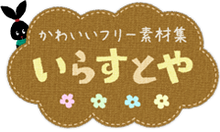Grammatical Structures Reference Tables
|
From ~ until ~ (time) From ~ to ~ (place) ~から ~まで |
なんじ から なんじ まで はたらきます か。 |
From what
time until what time do you work? |
|
ごぜん 8じ から ごご 5じ まで はたらきます。 |
I work from
8 in the morning until 5 in the afternoon. |
|
|
どこ から いきます か。 |
From where
will you go? |
|
|
とうきょう えき から いきます。 |
I will go from
Tokyo Station. |
|
|
どこ まで いきます か。 |
How far will
you go?(To where will you go?) |
|
|
おおさか まで いきます。 |
I will go as
far as Osaka. |
|
Saying where you どこ+で Place +で |
どこ で たべます か。 |
Where will
(you) eat? |
|
レストラン で たべます。 |
(I) will eat
at a restaurant. |
|
|
がっこう では たべません。 |
(I) will not
eat at school. |
|
|
どこ で かいます か。 |
Where will
(you) buy (it)? |
|
|
日本 で かいます。 |
(I) will buy
(it) in Japan. |
|
|
ニュージーランド では かいません。 |
(I) will not
buy (it) in New Zealand. |
|
Saying where you どこ+に Place +に |
どこ に いきます か。 |
Where will
(you) go? |
|
がっこう に 行きます。 |
(I) will go
to school. |
|
|
こうえん に 行きません。 |
(I) will not
go to the park. |
|
Talking about a place. どこ+が Place+が |
どこ が おもしろい です か。 |
Where/What
place is interesting? |
|
ここ/そこ/あそこ が おもしろい です。 |
This
place/That place/That place over there is interesting. |
|
|
ここ/そこ/あそこ は おもしろくない です。 |
This
place/That place/That place over there is not interesting. |
|
-い adjectives |
plain form |
おおきい |
Big. It’s
big. |
|
negative form |
おおきくない |
Not big. It’s
not big. |
|
|
past tense form |
おおきかった |
It was big. |
|
|
past tense negative form |
おおきく なかった |
It wasn’t
big. |
|
|
te
form |
おおきくて |
Used for
joining clauses |
|
|
おおきくて、やすい。 |
Big and
cheap. |
||
|
In a sentence |
ピザ は おおきい です。 |
The pizza is
big. |
|
|
And in the past tense. |
ピザ は おおきかった です。 |
The pizza
was big. |
|
|
In a sentence in front of the noun |
おおきい ピザ です。
|
It’s a big
pizza. |
|
|
And in the past tense. |
おおきい ピザ でした。 |
It was a big
pizza. |
|
-な adjectives (-の adjectives behave the same way as -な adjectives) |
plain form |
きれい(です) |
Pretty. It’s
pretty. |
|
negative form |
きれい じゃない(です) |
Not pretty.
It’s not pretty. |
|
|
past tense form |
きれい だった/でした |
It was pretty. |
|
|
past tense negative form |
きれい じゃなかった(です) |
It wasn’t pretty. |
|
|
te
form |
きれい で |
Used for
joining clauses |
|
|
きれい で、おもしろい |
pretty and
interesting |
||
|
In a sentence |
まち は きれい です。 |
The town is pretty. |
|
|
And in the past tense. |
まち は きれい でした。 |
The town was
pretty. |
|
|
In a sentence in front of the noun |
きれいな まち です。 |
It’s a
pretty town. |
|
|
And in the past tense. |
きれいな まち でした。 |
It was a pretty
town. |
|
Talking
about the existence of inanimate objects ある あります |
plain form |
ある/あります |
There is
(something) |
|
negative form |
ない/ありません |
There aren’t
any (somethings) |
|
|
In questions |
なに が あります か。 |
What is
there? |
|
|
りんご が あります か。 |
Is there an
apple? |
||
|
In a sentence |
りんご が あります。 |
There’s an
apple. |
|
|
In a negative sentence |
りんご が ありません。 |
There aren’t
any apples. |
|
|
In a longer sentence |
テーブル に りんご が あります。 |
There’s an
apple on the table. |
|
Talking
about the existence of animate objects (people and animals) いる います |
plain form |
いる/います |
There is/are
(something/somebody) |
|
negative form |
いない/いません |
There
isn’t/aren’t any (somethings/somebodies) |
|
|
In questions |
なに が います か。 |
What is
there? |
|
|
ねこ が います か。 |
Is there a
cat? |
||
|
In a sentence |
いぬ が います。 |
There’s a
dog. |
|
|
In a longer sentence |
にわ に いぬ が います。 |
There’s a
dog in the garden. |
|
|
With people |
だれ が います か。 |
Who is
there? |
|
|
おとこ の ひと が います か。 |
Is there a
man? |
||
|
こども が います。 |
There is a
child. / I have a child. |
||
|
こども は いません。 |
There aren’t
any children./I don’t have any children. |
|
How? By what means? どう やって なに+で Vehicle+で |
どう やって |
How? |
|
どう やって いきます か。 |
How will you
go? |
|
|
なに で/なん で |
By what? |
|
|
なに で いきます か。 |
By what will
you go? |
|
|
でんしゃ で/くるま で いきます。 |
I will go by
train/by car. |
|
|
あるいて いきます。 |
I will go on
foot. (By walking) |
|
finding the verb stem |
Begin with the ます form of the verb, then take off the ます. What you’re left with is the verb stem. |
|
かいます à かい
(buy) |
|
|
みますà み
(see) |
|
|
たべますà たべ
(eat) |
|
|
のみますà のみ
(drink) |
|
|
あぞびますà あそび
(play/hang
out/visit) |
|
going (in order) to do (something) coming (in order) to do (something) verb stem + に
+ |
かいます(buy) :
かい+に+いきます Go to buy |
|
|
スーパー に パン を かい に いきます。 |
I’m going to
the supermarket to buy some bread. |
|
|
みます(see):み+に+きます Come to see |
||
|
おきゃくさん は 東京 スカイツリー を み に きます。 |
Visitors
come to see the Tokyo Sky Tree. |
|
|
たべます(eat):たべ+に+いきました
Go to eat |
||
|
レストラン に すし を たべ に いきました。 |
(He/she)
went to a restaurant to eat sushi. |
|
|
のみます(drink) :のみ+に+きます Go to drink |
||
|
あまり、この カフェ に コーヒー を のみ に きません。 |
(I) don’t often
come to this café to drink coffee. |
|
|
あそびます(play/hang out) :あそび+に+きます
Come to play/hang out/visit |
||
|
うち に あそび に きて ください。 |
Please come
to visit (my house). |
|
|
want to do something verb stem + たい |
positive form (want to) |
たべたい |
verb stem + たい behaves the same as an -い adjective. Look up the section on -いadjectives to check how to make past tenses, -te forms and plain forms. |
|
negative form (don’t want to) |
たべたく ない |
||
|
desu/masu form (desu
on the end makes it more formal) |
おすし が たべたい です。 |
I want to
eat sushi. |
|
|
negative |
べんきょう したくない (です)。 |
I don’t want
to study. (!) |
|
|
positive |
えいが を み に いきたい (です)。 |
I want to go
and see a film. |
|
|
negative |
ホラー は みたく ない (です)。 |
I don’t want
to see a horror. |
|
|
past tense (wanted to) |
おみず が のみたかった (です)。 |
I wanted to
drink water. |
|
become ~ / grow ~ ~ に なります |
noun + に なります |
|
|
おとな に なります。 |
Become an
adult. |
|
|
せんせい に なりたい です。 |
(I) want
to become a teacher. |
|
|
adjective く なります |
||
|
きのう は、さむく なりました。 |
It got
cold yesterday. |
|
|
京都 は、なつ は とても あつく なります よ。 |
Kyoto
gets really hot in summer. |
|
|
age ~さい に なります |
||
|
18さい に なります。 |
Turn 18. |
|



